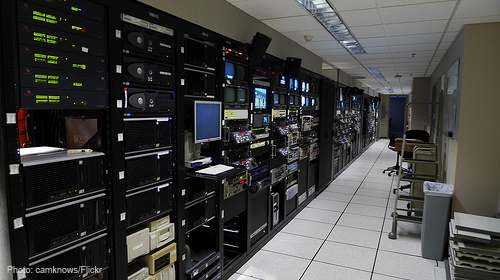
For years now, the ACLU and a coalition of other civil rights and civil liberties organizations have been working to roll back the NSA’s unconstitutional warrantless surveillance regime. This past summer’s revelations made the extent of this surveillance even more clear — and even more frightening.
Beyond phone call history, we now know the NSA has issued tens of thousands of direct requests for user data to the major Internet companies, and deployed bulk surveillance techniques to access social media activity, internet browsing history, emails, and online address books and contact lists.
Based on these revelations, the largest Internet companies came together in October to issue a letter to members of the House and Senate Judiciary Committees calling the USA Freedom Act an “important contribution to this discussion” on NSA surveillance. The letter also called for increased transparency for these NSA programs, and denied that intelligence agencies had “‘direct access’ to our companies’ servers or that we are participants in a bulk Internet records collection program.”
Unfortunately, these companies were wrong. It’s since been revealed that the NSA didn’t settle only for direct requests to those companies for data. Instead, the NSA betrayed their good faith, went behind their backs, and broke into the communication links of at least Google and Yahoo’s data centers, directly accessing hundreds of millions of unencrypted user email and information.
Today, Google, Yahoo, AOL, LinkedIn, Apple, Microsoft, Facebook, and Twitter came together and issued a full-throated defense of our constitutional rights, recognizing that pervasive government surveillance “undermines the freedom we all cherish.” Government surveillance also harms human rights, privacy, and these companies’ bottom lines. As Microsoft has recognized, “People won’t use a technology they don’t trust.”
The ACLU filed a lawsuit against the NSA’s mass call-tracking program just days after the program was revealed. With these major companies joining the fight to restore privacy and constitutional protections, the time for reform to end mass government surveillance is now.
Learn more about government surveillance and other civil liberties issues: Sign up for breaking news alerts, follow us on Twitter, and like us on Facebook.

